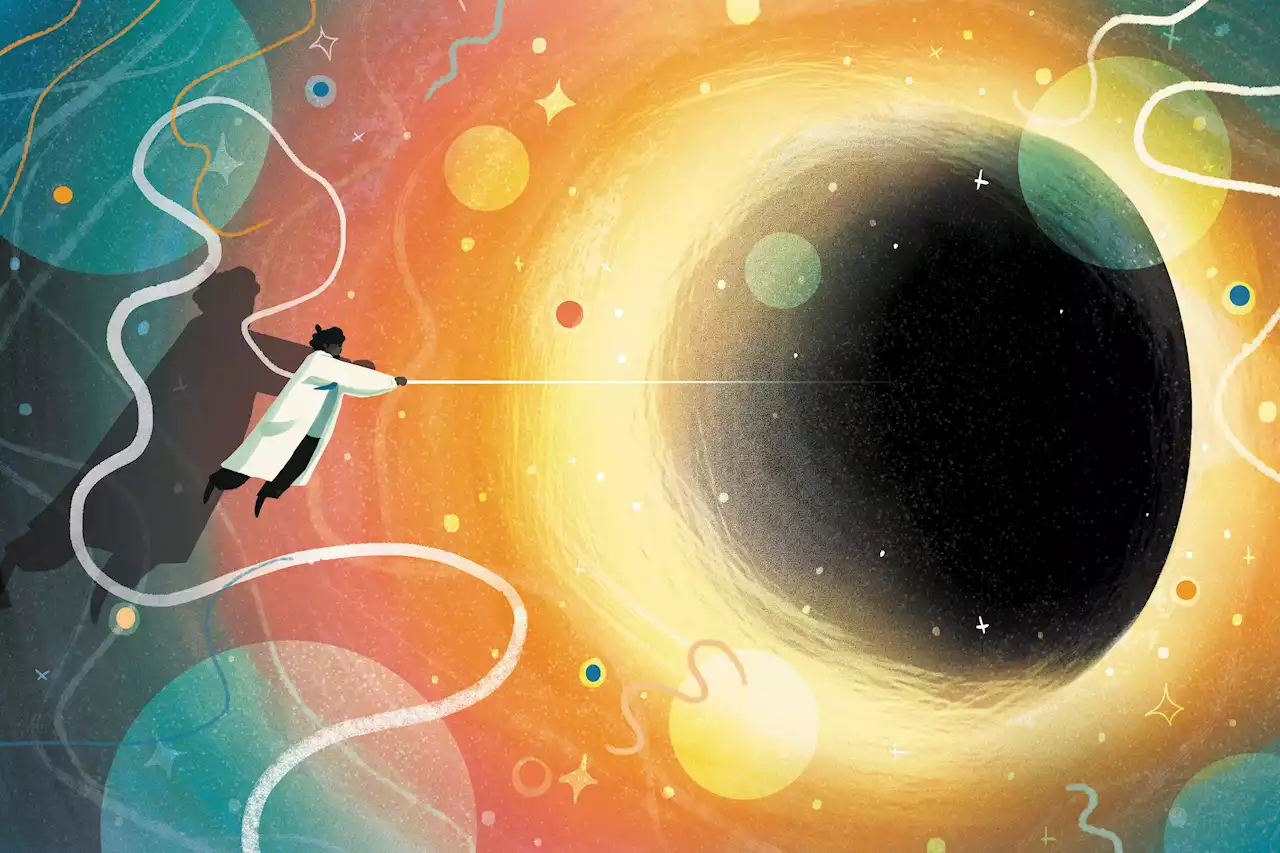Quantum entanglement and spacetime wormholes helped to solve a long-standing quandary
A few years ago a team of chemists unboiled an egg. Boiling causes protein molecules in the egg to twist around one another, and a centrifuge can disentangle them to restore the original. The technique is of dubious utility in a kitchen, but it neatly demonstrates the reversibility of physics. Anything in the physical world can run both ways—it's one of the deepest features of the laws of physics, reflecting elemental symmetries of space, time and causality.
Until recently, most of the “progress” physicists have made on this paradox over the decades has consisted of realizing the problem is even harder than they'd thought. Finkelstein's original work left loopholes. For one, it was based on Einstein's general theory of relativity, which physicists knew was not the full story, because it left out quantum effects. In the 1970s Stephen Hawking—in the work that made him a household name—took a first crack at including those effects.
So black holes may be reversible, but theorists' confusion goes only one way. On the bright side, studying the paradox has spun off ideas about gravity, spacetime and the unification of physics. For one thing, black holes imply that space has a limited capacity to hold material—you can pack in stuff only so tightly before it implodes to form a black hole. Oddly, the storage capacity of space scales up with a region's area rather than with its volume.
With all these ingredients in place, theorists were recently able to make a new assault on the black hole information paradox. In 2019 Almheiri, Engelhardt and their colleagues, and independently Geoff Penington of the University of California, Berkeley , were able to show how information could escape from black holes in the way Page had prescribed. In so doing the researchers confirmed that black holes are reversible after all.
In one especially sharp critique, Raju and his colleagues complained that the two teams' setup is highly contrived. To a degree, the same can be said of most theoretical models, but this one makes idealizations that are not at all innocent, these authors say. For instance, it supposes that gravity not only weakens with distance but eventually shuts off altogether.
These ideas and their variants have critics, too. Indeed, Mathur and Raju disagree with each other's approaches. So the nature of black holes is still up for grabs. And continuing the historical trend, theorists are doing better at finding new puzzles than at solving old ones. In recent years Leonard Susskind of Stanford has noted yet another paradox of black holes. Space inside them is so stretchy that their interior volume should grow forever.
United States Latest News, United States Headlines
Similar News:You can also read news stories similar to this one that we have collected from other news sources.
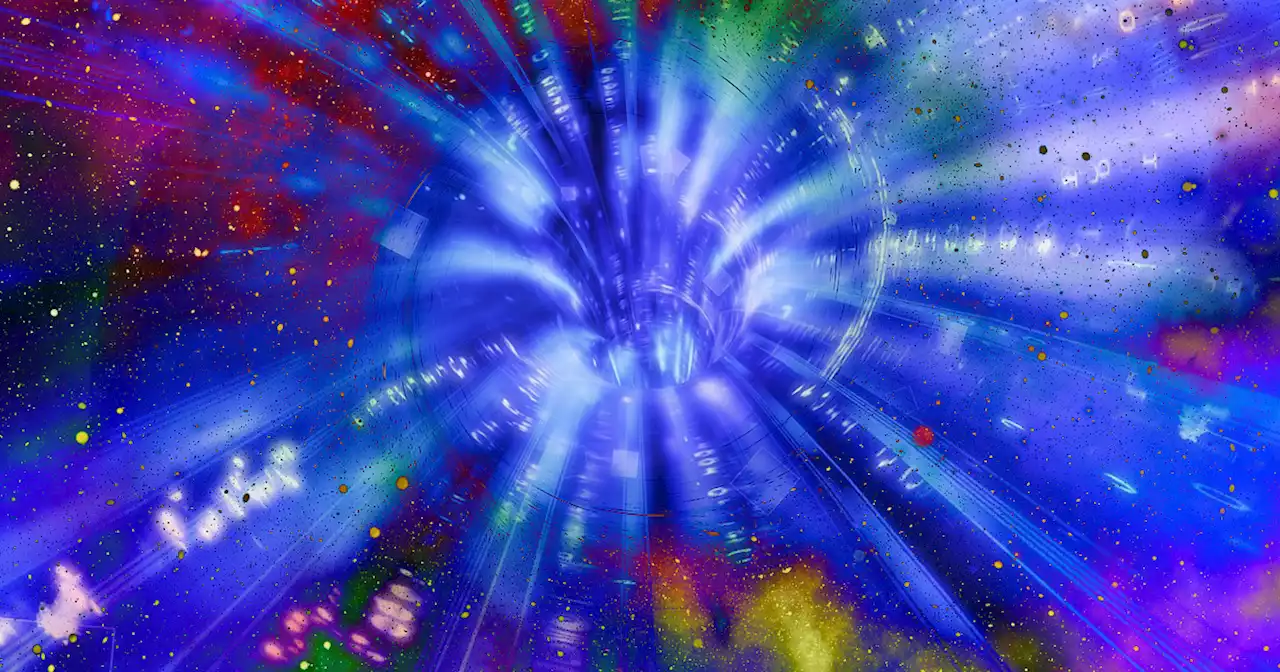 Physicists: Sueprmassive black holes may actually be wormholes'The wormholes we are considering are traversable wormholes, so theoretically spacecraft can travel through them.'
Physicists: Sueprmassive black holes may actually be wormholes'The wormholes we are considering are traversable wormholes, so theoretically spacecraft can travel through them.'
Read more »
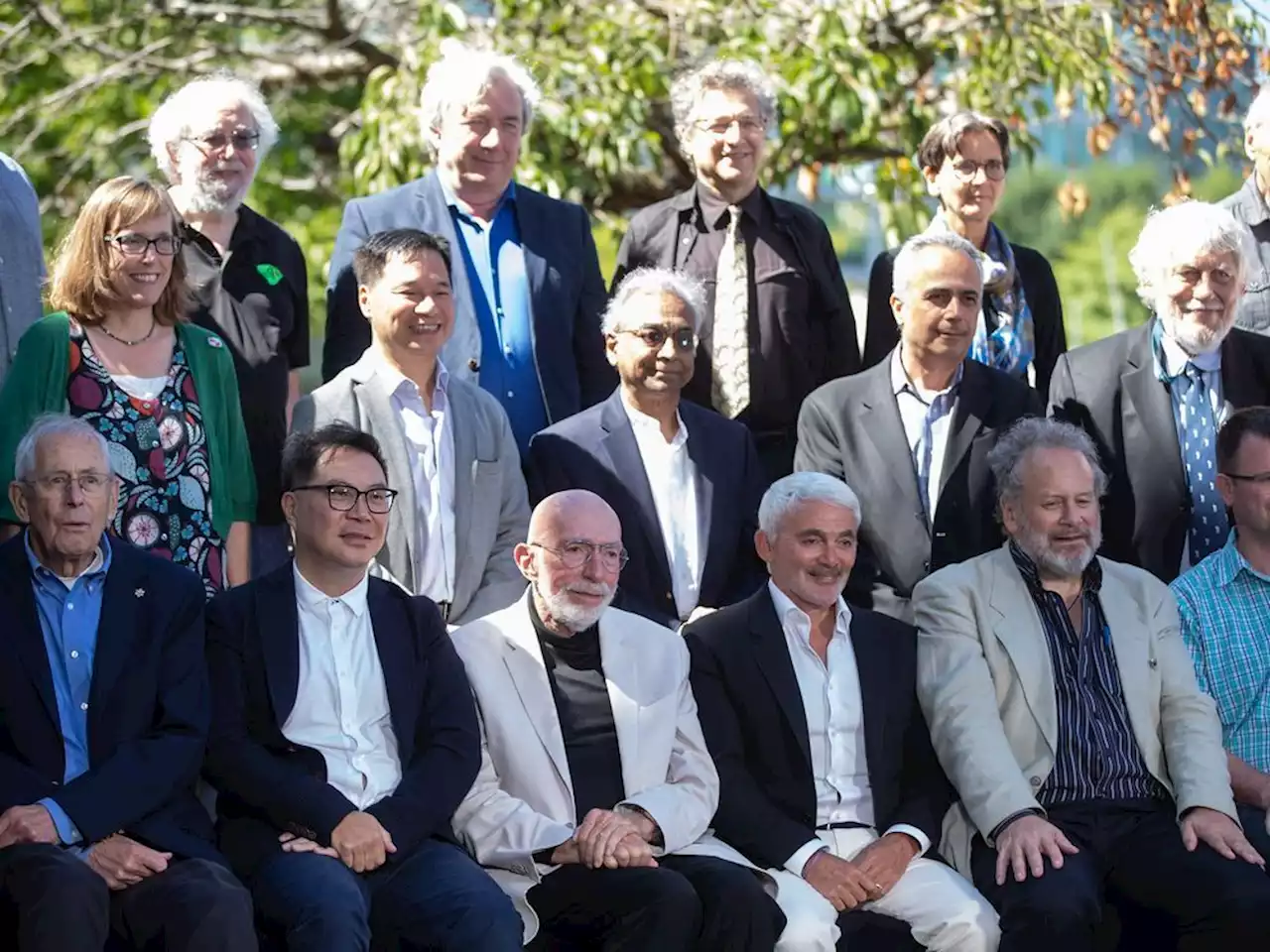 Physicists and business figures gather in Vancouver to crack theory of everythingVANCOUVER — Some of the world’s brightest minds are gathering at a hotel conference centre in Vancouver this week to try to solve a question that has baffled…
Physicists and business figures gather in Vancouver to crack theory of everythingVANCOUVER — Some of the world’s brightest minds are gathering at a hotel conference centre in Vancouver this week to try to solve a question that has baffled…
Read more »
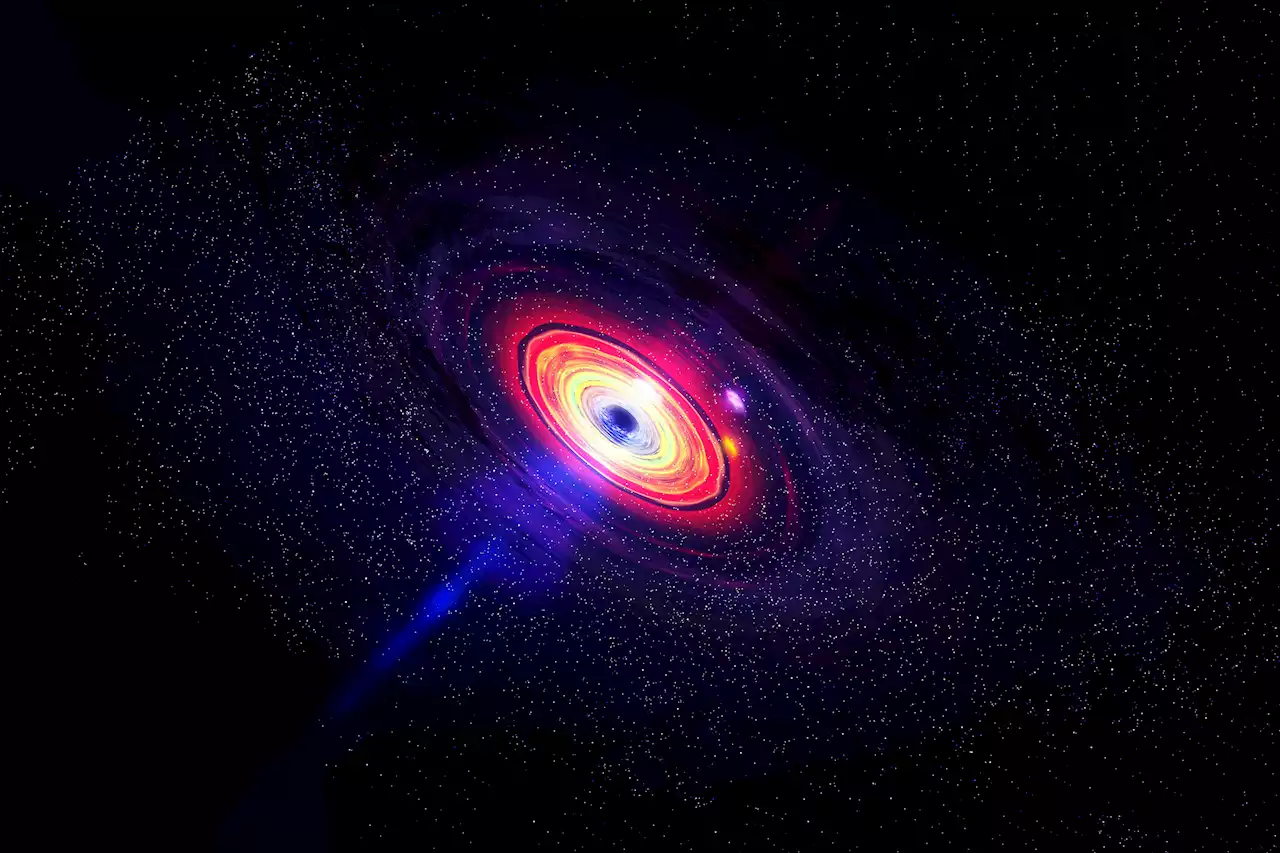 Colliding black holes may reveal one of the universe's best-kept secretsScientists may have discovered a new way to measure the universe's rate of expansion and it relies on two black holes colliding.
Colliding black holes may reveal one of the universe's best-kept secretsScientists may have discovered a new way to measure the universe's rate of expansion and it relies on two black holes colliding.
Read more »
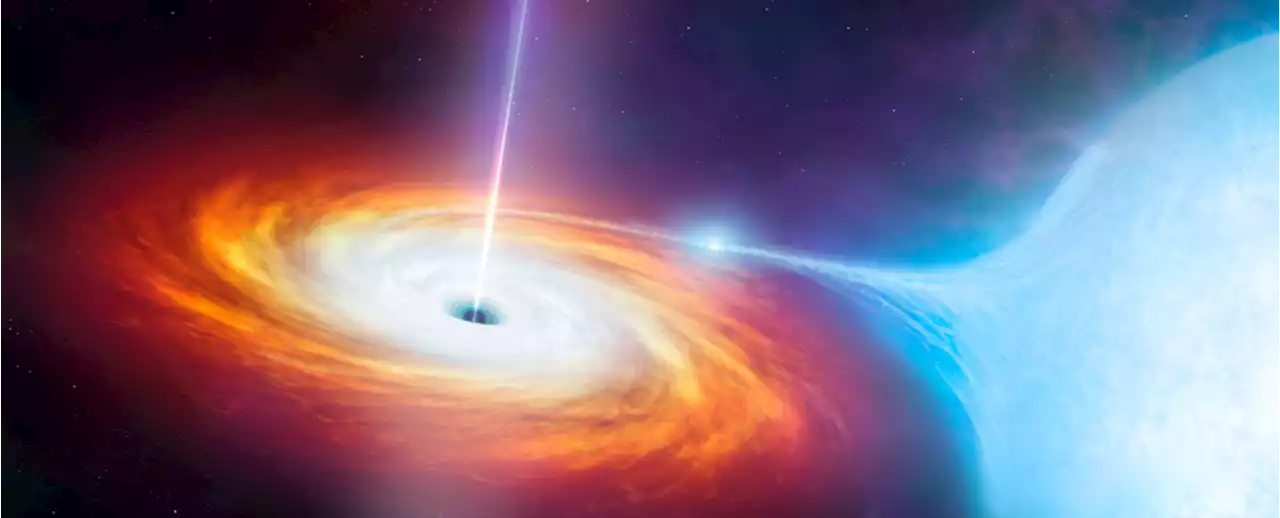 Astronomers Have Discovered a Black Hole Jet That Is 50 Times Larger Than Its GalaxyAstronomers at Western Sydney University have discovered one of the biggest black hole jets in the sky.
Astronomers Have Discovered a Black Hole Jet That Is 50 Times Larger Than Its GalaxyAstronomers at Western Sydney University have discovered one of the biggest black hole jets in the sky.
Read more »
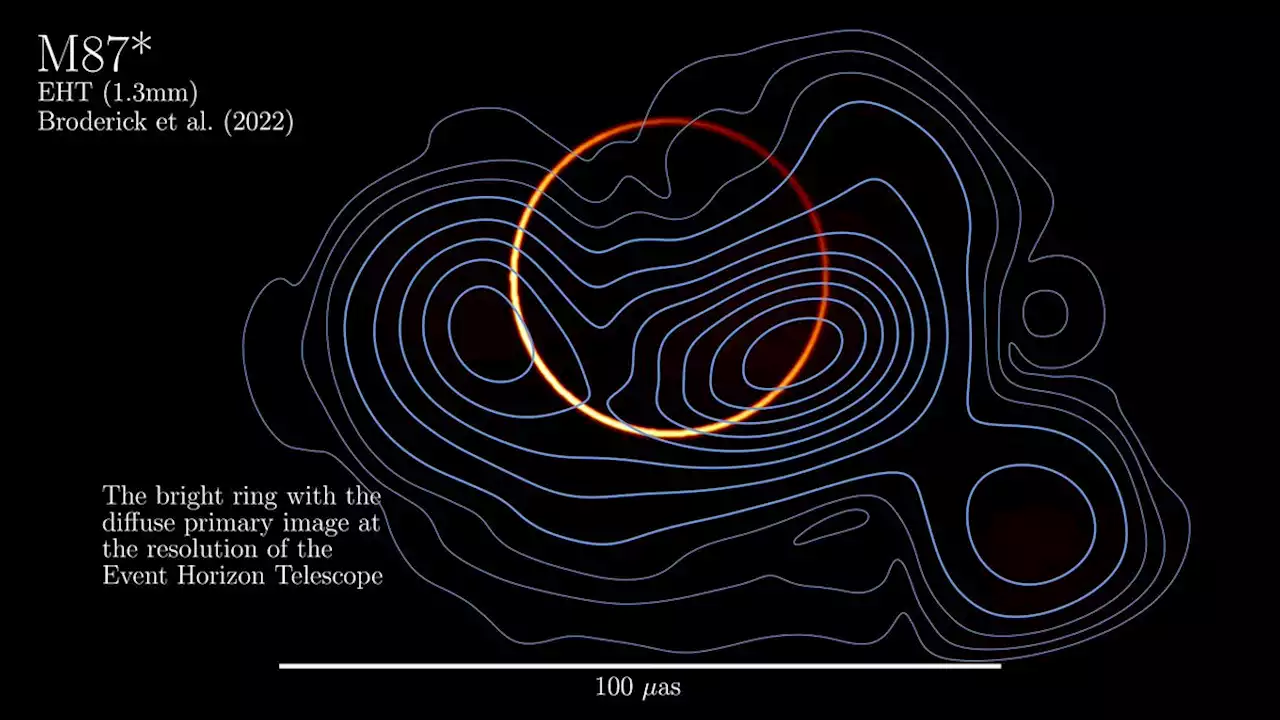 Astronomers Have Revealed a Black Hole's Photon Ring for the First TimeUsing data from the Event Horizon Telescope, a team of astronomers have calculated the photon ring of M87*.
Astronomers Have Revealed a Black Hole's Photon Ring for the First TimeUsing data from the Event Horizon Telescope, a team of astronomers have calculated the photon ring of M87*.
Read more »
